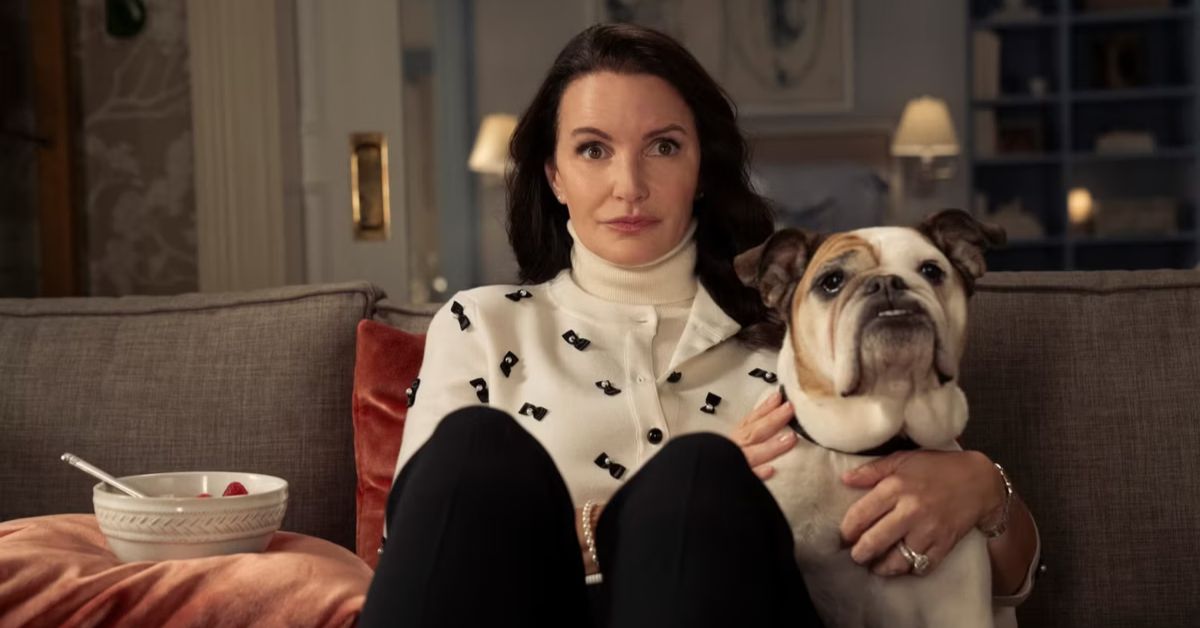Caregivers in Context: Caregiver Confessions in ‘And Just Like That’—What Charlotte’s Storyline Teaches Us About Burnout, Secrets, and Support
Caregivers in Context: Caregiver Confessions in ‘And Just Like That’—What Charlotte’s Storyline Teaches Us About Burnout, Secrets, and Support

By: Chance Browning, Senior Director of Strategic Partnerships, Caregiver Action Network
As fans of And Just Like That begrudgingly stream the latest (and, according to the showrunner’s recent announcement, final) season—many of us hate-watching with one eyebrow permanently raised—the show still manages to serve up some unexpectedly real moments.
Among the plotlines drawing attention this season is Charlotte York Goldenblatt’s role as a caregiver to her husband, Harry, who has been diagnosed with prostate cancer.
Despite the designer shoes, curated closets, and Upper East Side setting, Charlotte’s story resonates deeply with universal caregiver struggles—burnout, emotional whiplash, and the loneliness of carrying a secret that isn’t yours to share.
This moment in pop culture may be divisive (as in: “Why am I still watching this?” divisive), but for the millions of family caregivers in the U.S., Charlotte’s arc reflects the complexity of caregiving in a way that deserves our attention.
When Secrets Hurt: The Cost of Withholding a Diagnosis
 In And Just Like That, Harry initially decides to keep his prostate cancer diagnosis a secret, even from Charlotte. While his desire to shield his wife from pain may seem noble, this kind of secrecy can be emotionally costly—especially for caregivers who are left to process fear, anger, and helplessness all at once.
In And Just Like That, Harry initially decides to keep his prostate cancer diagnosis a secret, even from Charlotte. While his desire to shield his wife from pain may seem noble, this kind of secrecy can be emotionally costly—especially for caregivers who are left to process fear, anger, and helplessness all at once.
Caregiver Action Network frequently sees this in real life: patients sometimes delay disclosing a serious health condition in the hope of maintaining “normalcy.” But when that secret finally surfaces, it can fuel resentment, increase anxiety, and short-circuit trust. Charlotte’s emotional unraveling in the show—marked by anger, panic, and eventual confrontation—captures the ripple effects of being left in the dark.
Pro Tip: Shared decision-making, where both patient and caregiver discuss care preferences and information together, is a key component of effective caregiving. CAN’s Help for Cancer Caregivers is a great place to start those difficult conversations, offering tools, checklists, and support strategies.
Burnout Behind the Balancing Act

Charlotte is more than a wife—she’s a mom to two teens, an art gallery employee, and an ever-present emotional anchor. Sound familiar?
According to AARP and the National Alliance for Caregiving:
- 61% of family caregivers are employed, and nearly half say they’ve had to adjust their work schedules to accommodate caregiving responsibilities.
- 23% of caregivers say it’s impacted their health.
- Caregivers often spend 20+ hours per week on unpaid caregiving—often on top of full-time jobs.
Charlotte’s growing fatigue and mounting stress mirror what many caregivers experience daily. The show hints at it with subtle but poignant moments—her forgotten work commitments, emotional breakdowns, and inability to be “everything to everyone.” Though the backdrop may be glamorized, the core experience is deeply relatable.
If you’re juggling work and caregiving: CAN offers workplace-friendly resources for working caregivers, including self-assessment tools and tips for navigating HR conversations. Visit our Working Caregivers Resource Hub.
What Pop Culture Gets Right—and Wrong—About Caregiving
Let’s be honest: And Just Like That is not known for subtlety or realism. Many longtime fans of Sex and the City feel the reboot has lost its magic—and social media has turned hate-watching into a community sport. But even within the chaos of this season’s writing, Charlotte’s storyline cuts through the noise.
The show doesn’t glamorize Harry’s illness. It doesn’t shy away from Charlotte’s spiraling. And in doing so, it normalizes something that’s still too often invisible: the emotional labor of caregiving.
What Caregivers Can Take Away from Charlotte’s Journey
- Speak up. Don’t suffer in silence—communicate with your loved one and your circle about how the diagnosis affects you too.
- Seek support. Caregiver burnout is real. If Charlotte had tapped into a caregiver support group, she might’ve had more tools—and less wine-fueled stress.
- Plan proactively. Don’t wait for a health crisis. Use tools like CAN’s Help for Cancer Caregivers to start mapping out next steps.
- Give yourself grace. If Charlotte, a fictional perfectionist with a walk-in closet, can admit she’s struggling—so can we.
Hate-Watch or Not, This Is Real Life for Millions
Charlotte’s storyline may not redeem the entire season, but it gives us a rare—and honest—look at the emotional undercurrent of caregiving. And while your life may not feature Met Galas or podcast cameos, the challenges of navigating a spouse’s illness while keeping your family afloat are as real as it gets.
Know that you’re not alone in your caregiving journey. Caregiver Action Network is here to help with free resources, community support, and expert-backed guidance.
📌 Explore more at caregiveraction.org
📌 Start with our Help for Cancer Caregivers Toolkit
📌 Need emotional support? Call our free Caregiver Help Desk at 855-227-3640



